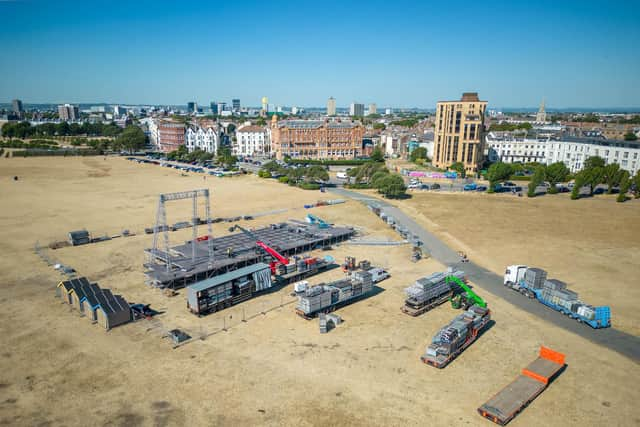UK Drought: What does drought mean, what causes it, why was it declared across the south of England today by government and what happens now?
and live on Freeview channel 276
Portsmouth, Hampshire and much of the country are again expected to see harsh and hot weather, according to the Met Office.


A drought was implemented at midday today.
The arid conditions are leading to water shortages, with Southern Water enforcing a hosepipe across parts of Hampshire.
Advertisement
Hide AdAdvertisement
Hide AdPortsmouth Water has not implemented the measure, but is monitoring conditions.
Here is all you need to know about drought declarations:


What is drought?
A drought is a prolonged period of abnormally low rainfall, leading to a shortage of water.
The World Health Organisation (WHO) estimate that 55 million people globally are affected by droughts every year.
A statement on their website said: ‘They are the most serious hazard to livestock and crops in nearly every part of the world.
Advertisement
Hide AdAdvertisement
Hide Ad‘Drought threatens people’s livelihoods, increases the risk of disease and death, and fuels mass migration.’
What causes drought?
Arid and sweltering conditions combined with a lack of rainfall leads to droughts being declared.
This is often exacerbated by climate change, according to the WHO.
They said: ‘Rising temperatures caused by climate change are making already dry regions drier and wet regions wetter.
Advertisement
Hide AdAdvertisement
Hide Ad‘In dry regions, this means that when temperatures rise, water evaporates more quickly, and thus increases the risk of drought or prolongs periods of drought.’
Will a drought be declared because of the heatwave?
A drought has been declared for parts of southern and central England, as well as sections of the south west and east of the country.
Temperatures are forecast to hit 35C in some areas.
The Met Office forecasts peaks of 28C in Portsmouth today.
Britons have been warned of the health impacts of extreme heat and the risk of wildfires amid a heatwave blasting the nation.
The National Drought Group, made up of Government and agency officials, water companies and other groups such as the National Farmers’ Union (NFU), met today following a prolonged spell of dry weather.
It has been the driest first half of the year since 1976.
What happens now a drought has been declared?
Advertisement
Hide AdAdvertisement
Hide AdThe Environment Agency and water companies will implement more of their plans to manage the impacts of low water levels, which can include actions such as hosepipe bans.
It is a requirement for these companies to enact plans that are agreed by the Environment Agency.
The plans also allow companies to apply for drought permits, if needed, to abstract more water from rivers, reservoirs or aquifers.
If conditions worsen, an ‘extreme drought’ may be declared.
Local restrictions would then have to be introduced by water companies on non-essential water use.
Advertisement
Hide AdAdvertisement
Hide AdThis includes limits on commercial car washes, swimming pools or the cleaning of commercial premises.
Water companies could potentially have to ask the government for an emergency drought order.
This allows them to ration water supplies to homes and businesses at certain times of the day, or ask customers to access the liquid from standpipes or mobile water tanks.
Farmers may also face restrictions for irrigation.
